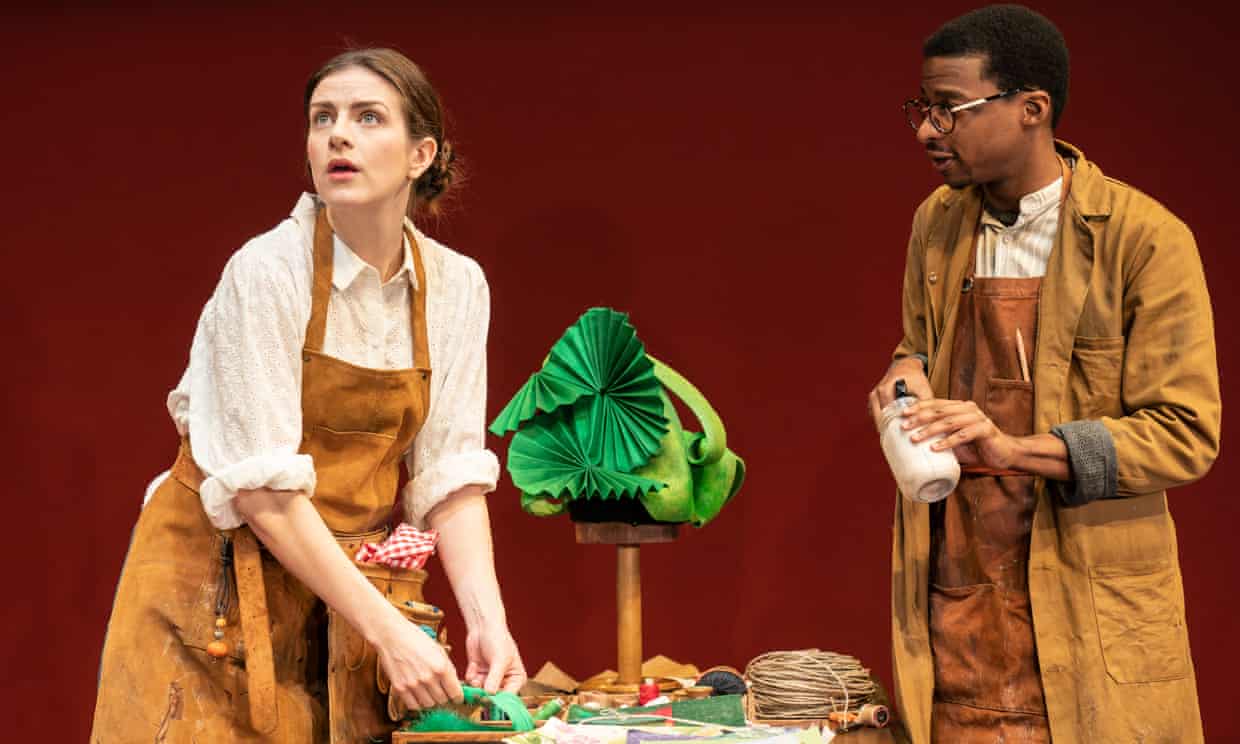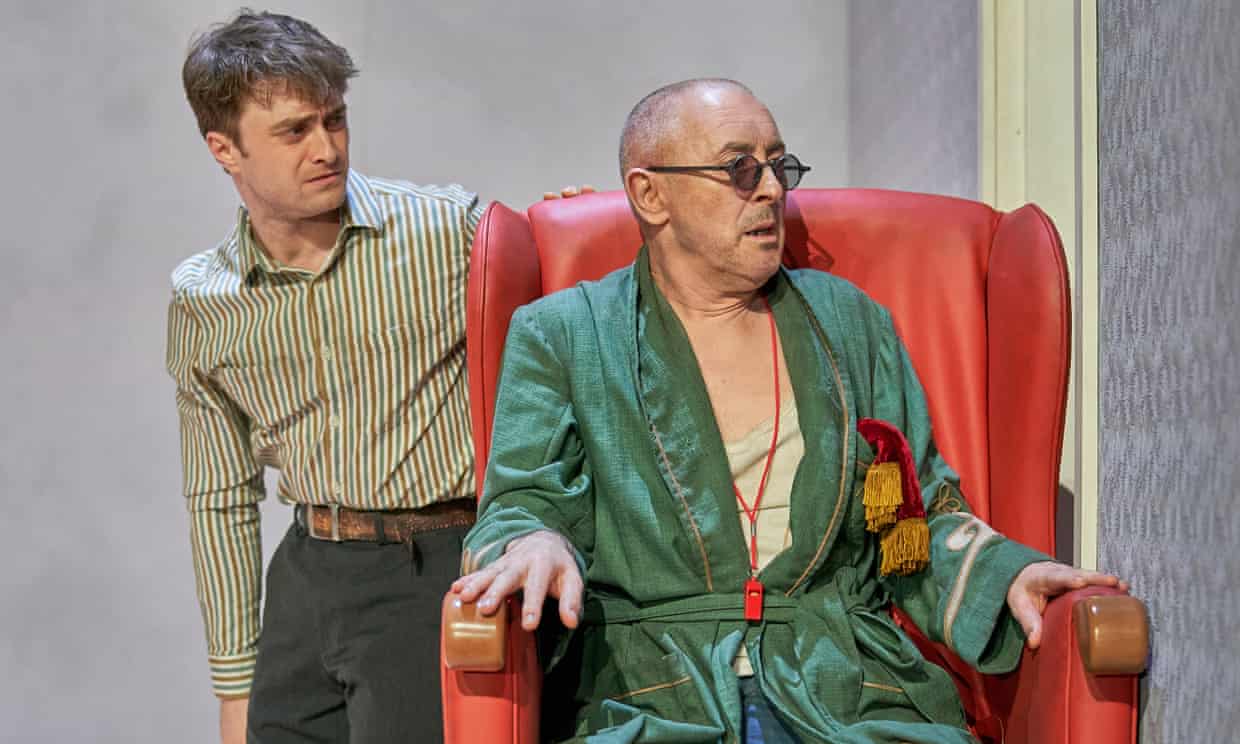
Theatre
Content warning: this play only lasts 40 minutes
Both the Donmar Warehouse and the Royal Court are staging plays that are under three-quarters of an hour long. Are theatregoers being short-changed?
by Mark LawsonPeople do a double take at the advisory notice outside the latest production at the Donmar Warehouse. The shock comes not from the warning of “strobe lighting, loud noises and haze” at the London theatre but the running time: “40 minutes”. Those familiar with Far Away, Caryl Churchill’s fable of a totalitarian state, will know of its brevity, but the play has generally been seen in studio spaces (including its 2000 premiere at the Royal Court Theatre Upstairs) or double bills. This time, it’s a full evening on a main stage.
Such little shows are currently big. Another Churchill short, A Number, is being revived at the Bridge theatre, with the advertised running time “around 60 minutes”. The main stage at the Royal Court is also running performances of Alistair McDowall’s 40-minute monologue All of It. Remarkably, the combined running time of all three is still less than Tony Kushner’s three-and-a-half-hour adaptation of Friedrich Dürrenmatt’s The Visit, which has just opened at the National Theatre.
Each of the four shows is sold as a single evening of theatre. But some audience members are bemused to find their night out being over as little as three-quarters of an hour after it began. The venues seem to sense this. Panel discussions have been scheduled after three performances of Far Away, with the half-hour gap between show and chat boosting bar takings.

The Royal Court caters for those wanting longer entertainment by running All of It at 9.30pm, soon after Poet in Da Corner, a 70-minute show that plays at 7.30pm on the same stage. This effectively creates a double bill, although one that requires buying separate tickets. A more formal two-play evening can be found at the Old Vic where, perhaps worrying that Samuel Beckett’s 85-minute Endgame wasn’t enough, even with Daniel Radcliffe and Alan Cumming in the cast, it has been paired with the 25-minute Rough for Theatre II, a rarely seen curiosity that was a pleasant revelation to me.
With Old Vic tickets selling at £8.50-£125 (not counting £150 charity performances), seeing the Beckett double bill amounts to a price-per-minute of around a seventh of a penny to £1.13. But do such calculations make a difference to your willingness to pay? Someone buying a ticket (£15-£89) for The Visit is paying from around 7p-42p per minute, while All of It (£14-£25) works out at about 35p-62p.
Your view of what represents value will depend on individual stamina, finances and theatre-life balance. A quid a minute to see an actor of the quality of Roger Allam in A Number seems to me a good deal. And Churchill’s later plays are so dense and concentrated that the 40-minute Far Away has an emotional and political heft leaving you feeling as if you’ve seen an epic Shakespearean tragedy. The Visit, meanwhile, is staged with such exuberance and invention that it feels shorter than its three and a half hours – another sign that length and value are a complex theatrical equation.